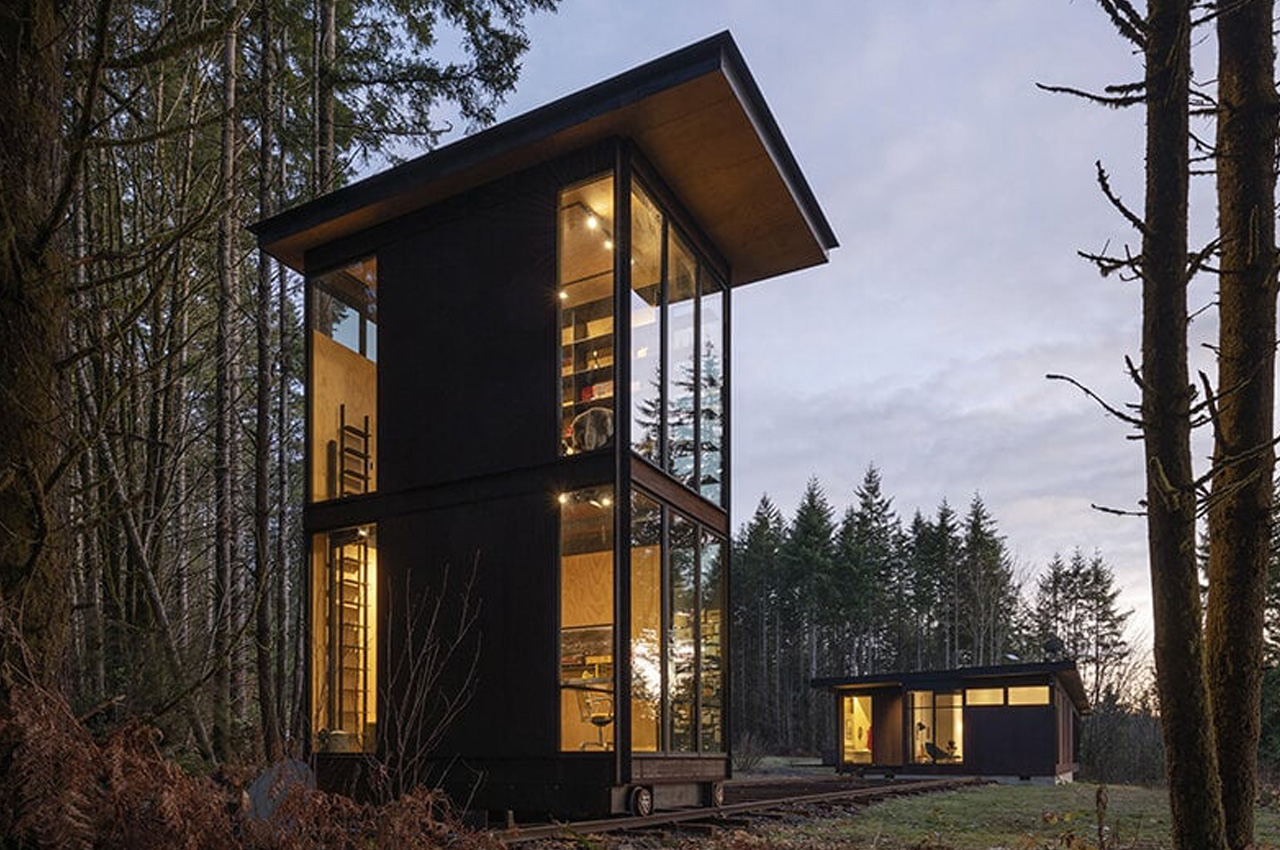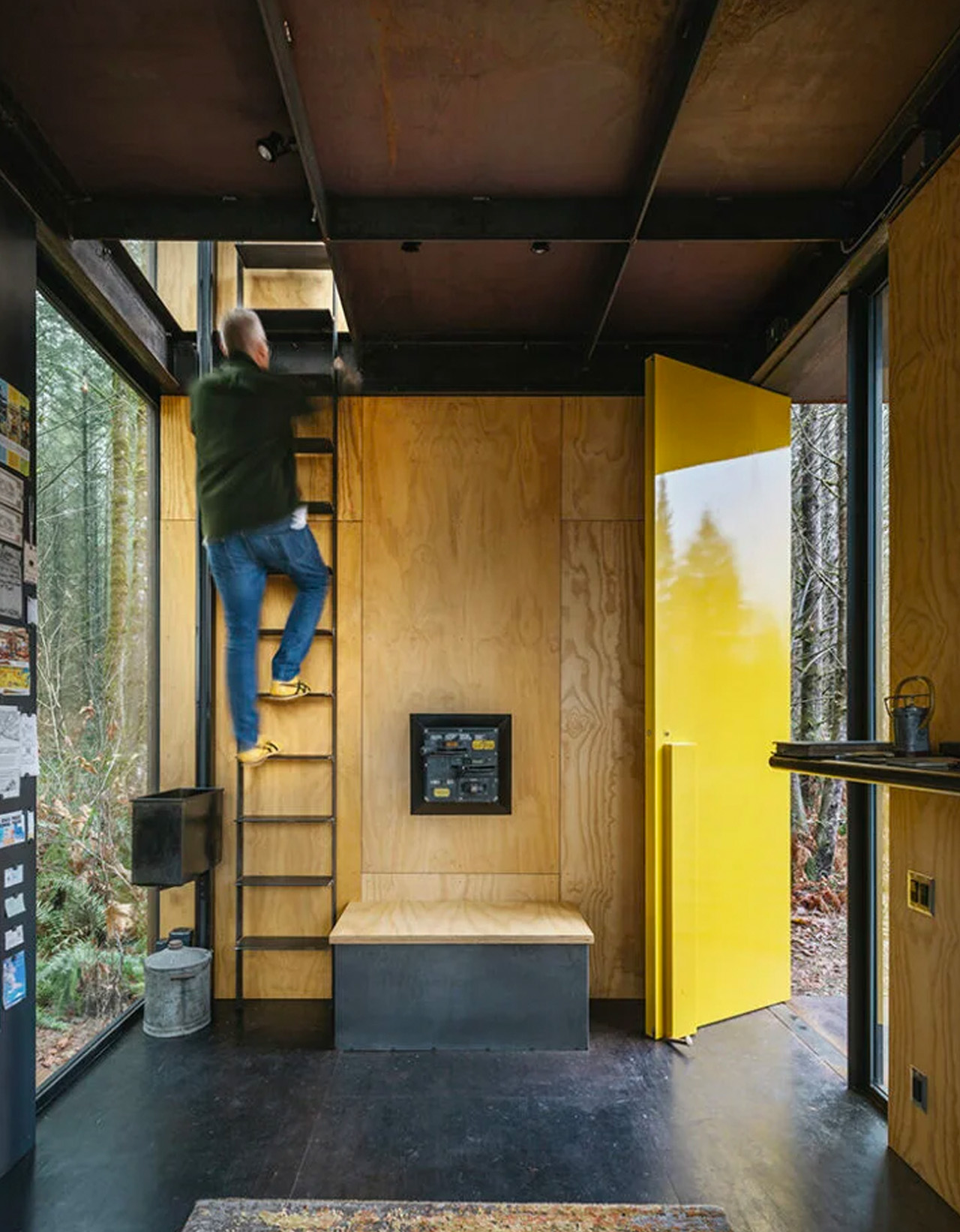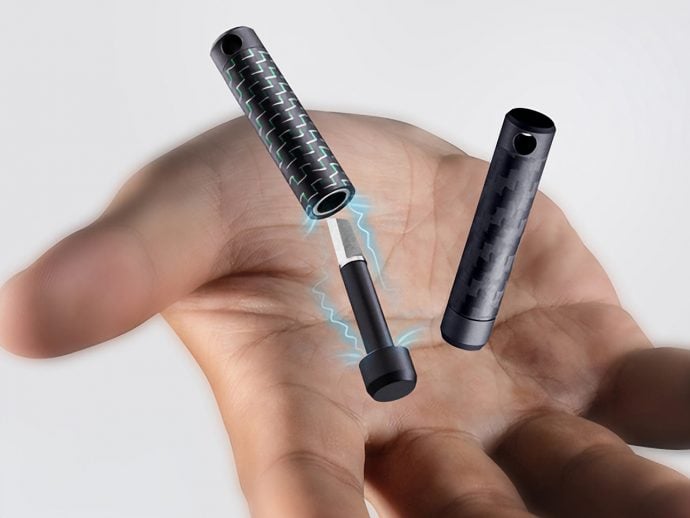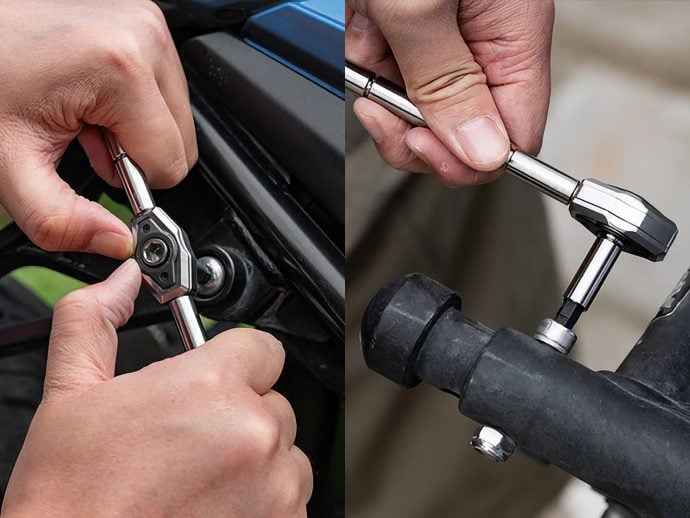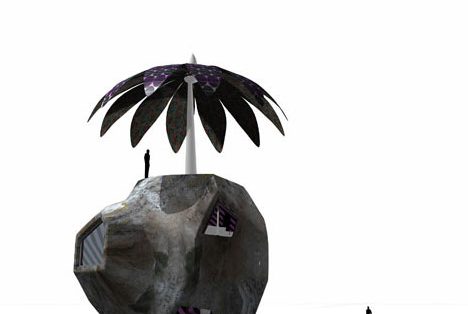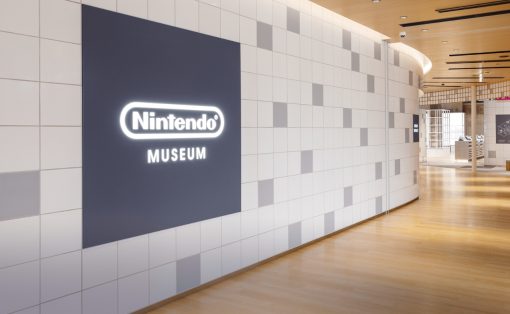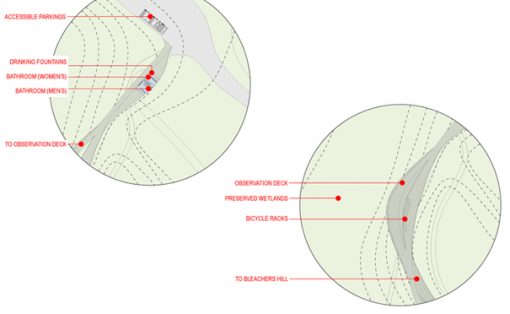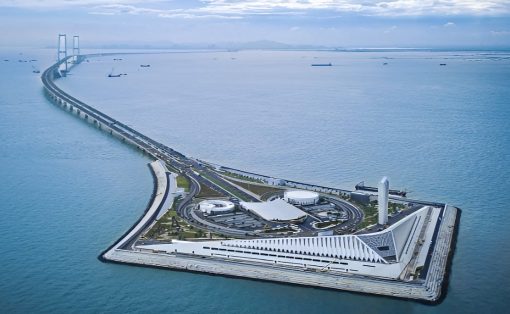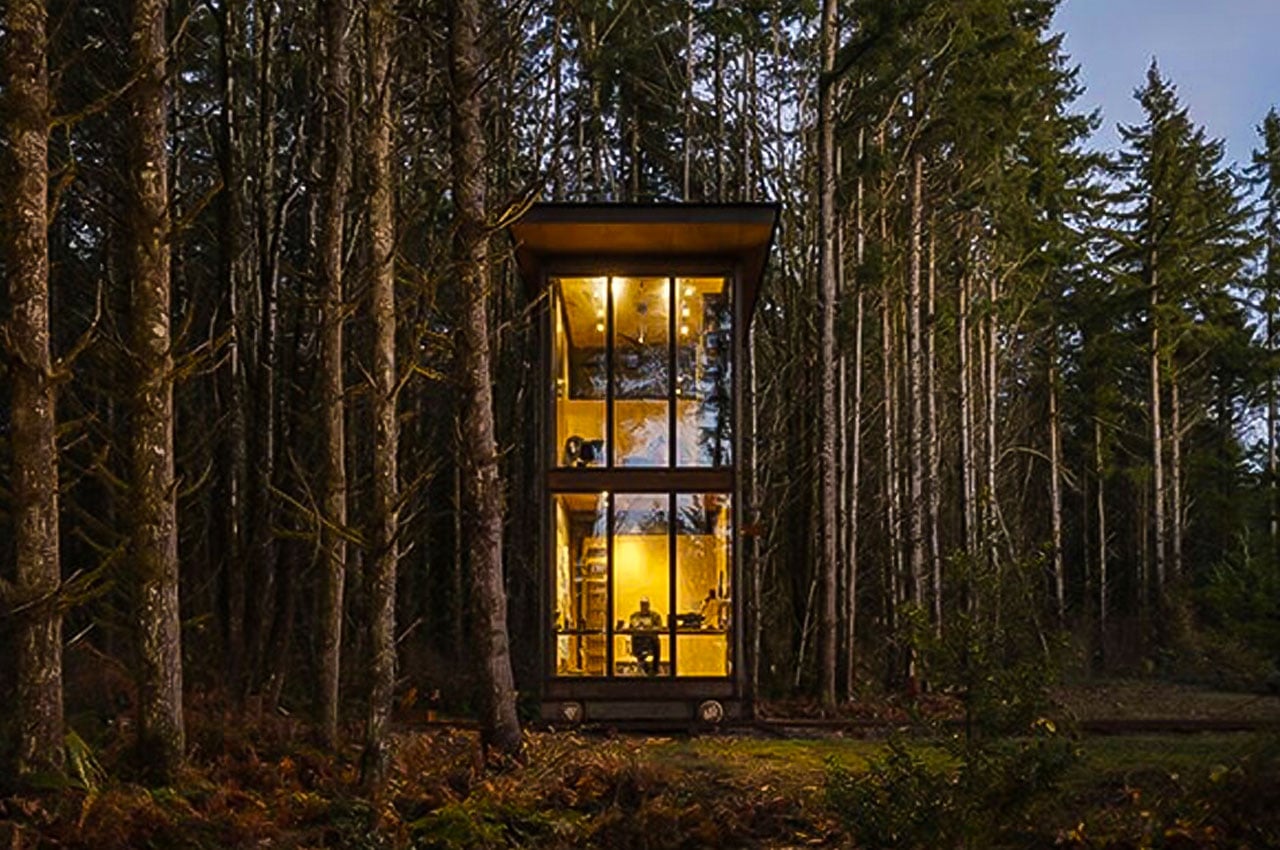
Designed by Olson Kundig Architects, the Maxon Studio is a private workspace designed to function as a sidekick to a pre-existing house. The workspace and the home are tucked away in the forests of a rural area outside Seattle. It is a two-story steel tower, that has been mounted on a fifteen-foot-gauge railroad track and is designed to be a seamless and effortless extension of the main house, while also functioning as an independent structure.
Designer: Olson Kundig Architects
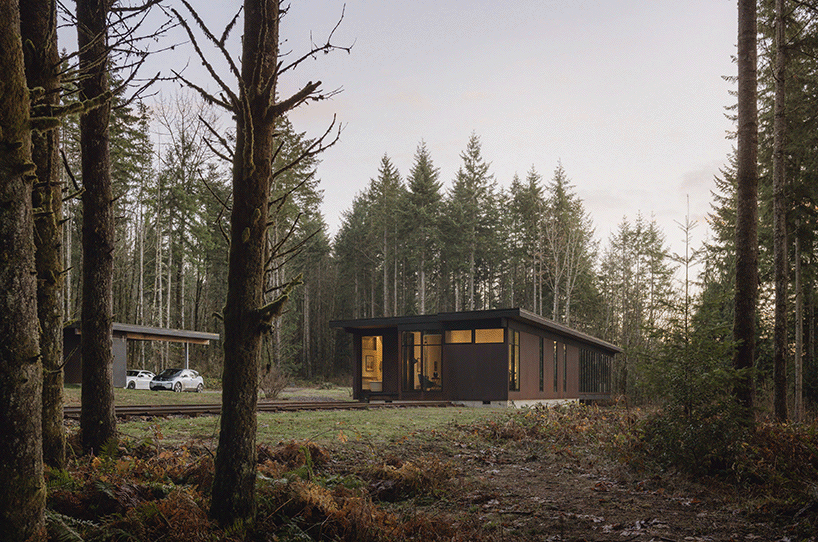
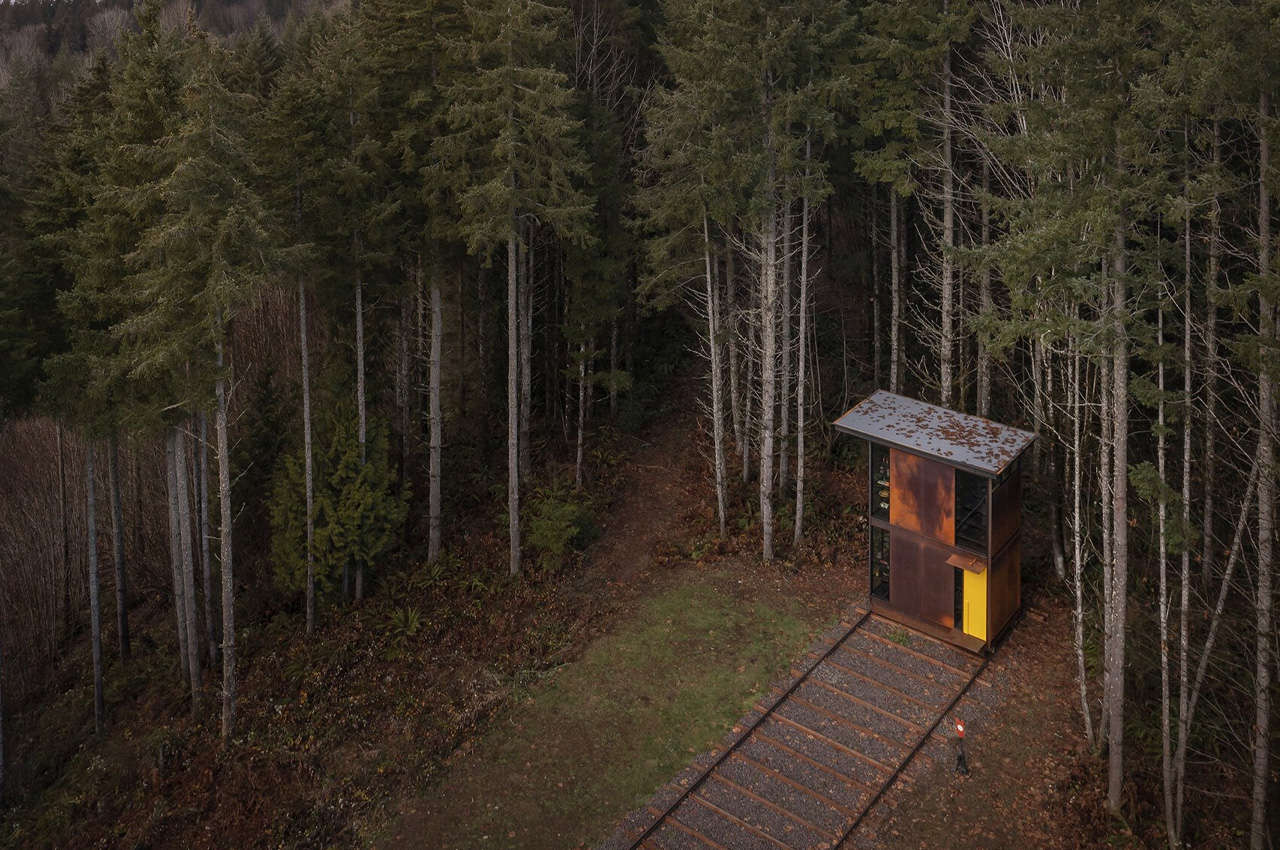
Designed to be a workspace, and a retreat to relax and unwind in, the Maxon Studio features the same materiality and views as the main home. While the main house is horizontal, the studio is vertical, creating an interesting yet cohesive contrast between the two structures. The architects drew inspiration from the local region’s rail industry legacy, and the excavation site’s discovery of steel cables and railroad spikes while they were constructing the main house. Mimicking a traditional caboose, the lower storey of the studio functions as a primary workspace with a built-in desk, and multiple shelves for storage and display.
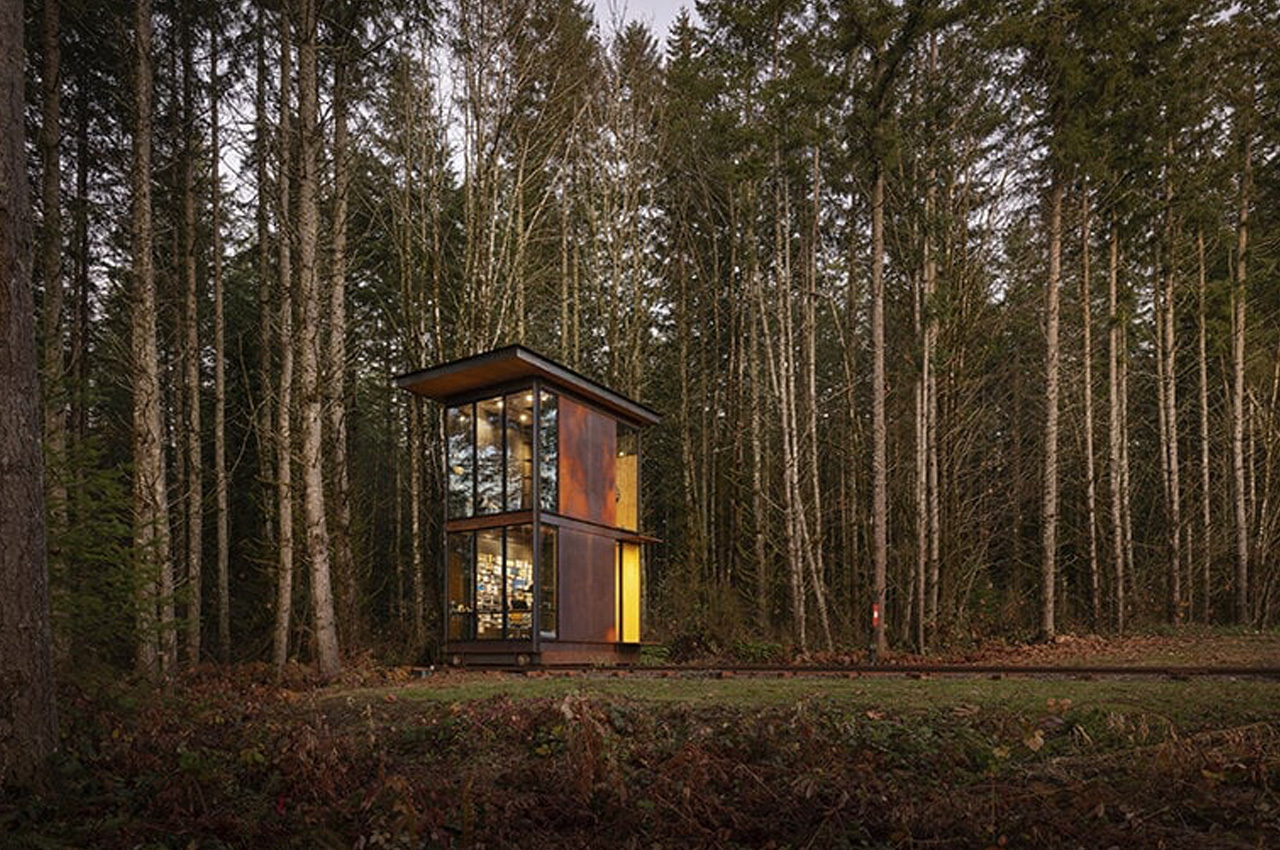
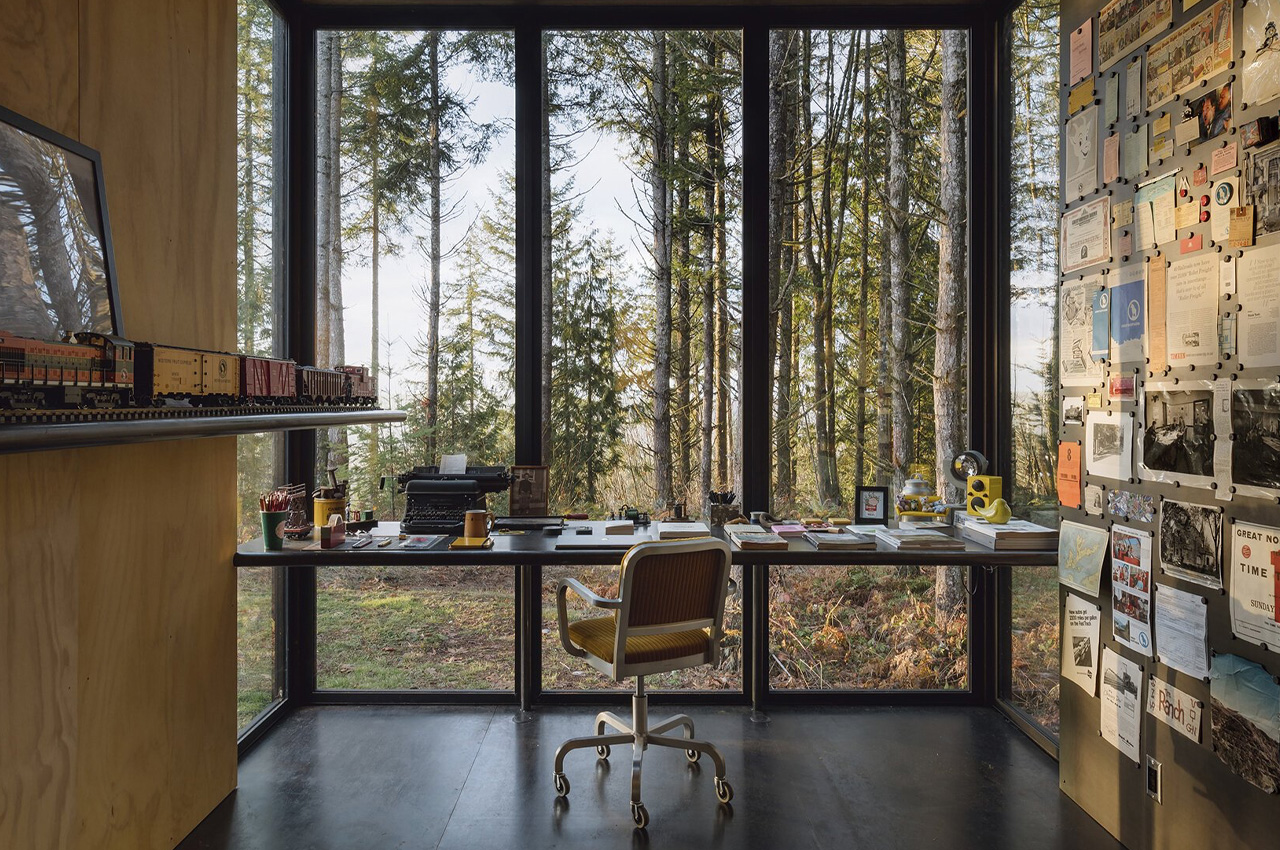
The workspace is surrounded by a steel-clad wall which allows visually stimulating materials to be easily replaced, to create different themes and assignments. The upper level can be accessed via a steel ladder and serves as a zen retreat to restore yourself and explore your creativity. ‘This level functions much like a cupola on a train’s caboose, a high vantage point to look out across the landscape,” said the architects.
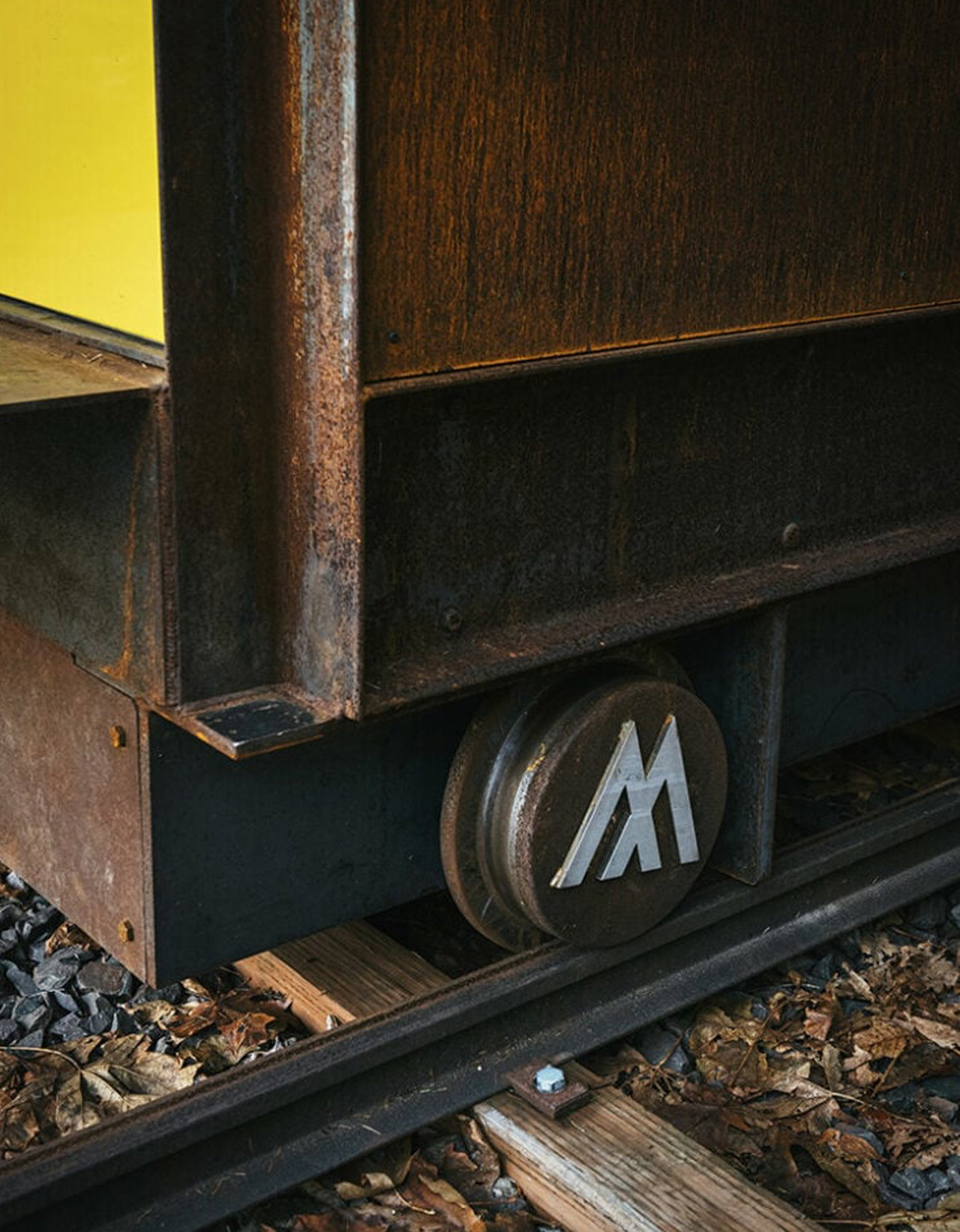
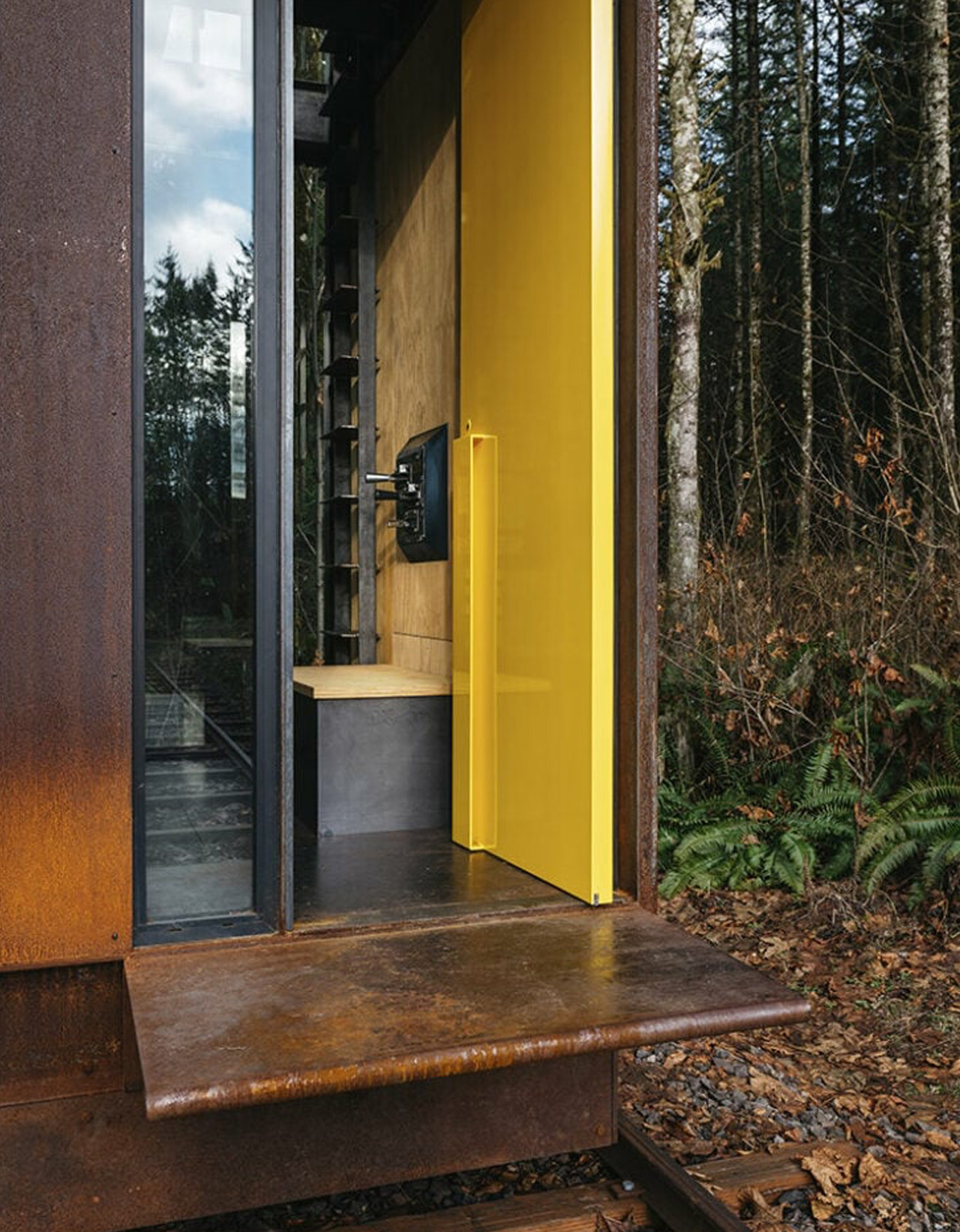
What makes the Maxon Studio even more interesting is that it has wheels, making it a portable workspace! This also signifies the influence of train and railway design on the structure. The door of the studio has been painted in the DuPont paint color of the striping on Great Northern trains. The interiors have been clad in wood, and authentic wooden railroad ties repurposed from a Great Northern Railroad relay line have been used. The studio also includes a stabilizing bar to ensure the tower doesn’t tip during an earthquake – this was inspired by Japanese high-speed railways. The studio’s control panel was also originally installed in the Burlington Northern locomotive.
